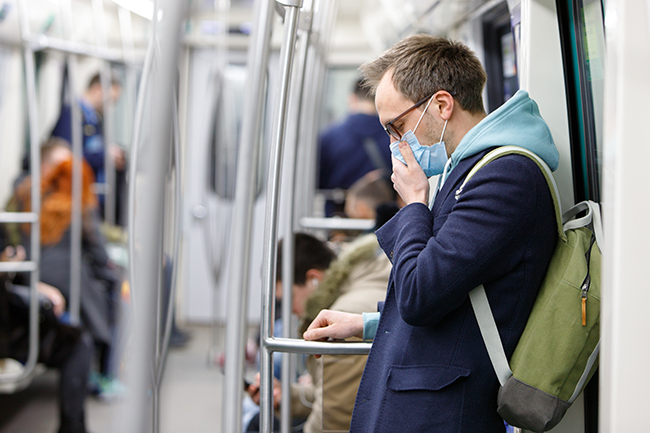 During this unprecedented time, we are very aware that our patients will be concerned not only about Coronavirus / COVID-19, but for their general health, including any urological conditions for which they have been referred or for which they are already under investigation and treatment.
During this unprecedented time, we are very aware that our patients will be concerned not only about Coronavirus / COVID-19, but for their general health, including any urological conditions for which they have been referred or for which they are already under investigation and treatment.
We have drawn up the following information to try and answer issues around outpatient consultations, scheduled operations and some changes that may be needed to the usual discharge arrangements for patients on hospital wards.
Introduction
HM Government's public health advice to us all is changing all the time. Since each patient’s problem is unique, and local hospital and departmental circumstances vary, it is impossible to provide specific recommendations and plans. Despite this, the points below are relevant to most patients.
 You will find that the number of “face-to-face” appointments has reduced significantly and “virtual consultations” by telephone or communication software (e.g. Skype, WhatsApp, Zoom) are used instead, wherever possible. You should note that phone calls from hospitals often appear as “number withheld” or “No Caller ID”, so please make sure that your mobile phone will accept these important incoming calls; this will allow you to answer them so you do not miss the opportunity to discuss your case in person with your urology team.
You will find that the number of “face-to-face” appointments has reduced significantly and “virtual consultations” by telephone or communication software (e.g. Skype, WhatsApp, Zoom) are used instead, wherever possible. You should note that phone calls from hospitals often appear as “number withheld” or “No Caller ID”, so please make sure that your mobile phone will accept these important incoming calls; this will allow you to answer them so you do not miss the opportunity to discuss your case in person with your urology team.
Operating theatres have not been running as usual, due to the need to delay the spread of coronavirus, and our operating theatres and ventilators have, at times, been used as an additional intensive care facility. The decision to proceed with any surgery will be a balance between the urgency of the operation against the risk of acquiring coronavirus, and of the consequences of doing so. Of course, these are extremely difficult decisions, and you can be assured that your team will consider every aspect fully before advising you regarding your planned admission.
See the dropdown tab below - How are outpatient clinics going to run? - for more details about remote consultations, and to watch a short video explaining how they will take place
We fully appreciate that this is an extremely unsettling time, and we are grateful for your patience, understanding, and support as we move ahead. The safety and wellbeing of all of our patients is our primary concern, and we will strive to get back to normal as soon as we possibly can.
Recommended Sources of Further COVID-19 Information
These all link to sources of information outside the remit of this website. BAUS is unable to accept any responsibility for the content of external sites.
Frequently Asked Questions (FAQs)
How should I contact my urology team?
Your clinical team has many thousands of patients, so the telephones are likely to be extremely busy and difficult to get through on, particularly as they may be used for telephone consultations (see below). We recommend that you check the hospital website for specific local advice about how best to contact your urology team e.g. an e-mail to your Consultant's secretary or unit administrator.
What happens if I am self-isolating?
Following the advice regarding “social distancing”, it is very likely that appointments will need to be changed and rearranged, for patients need to self-isolate as a precaution or those with symptoms of Covid-19. Should this apply to you, it is important that you follow the latest public health advice and do not attend the hospital for routine appointments such as imaging or outpatient consultations. Obviously, if the symptoms of your urological problem are severe and require urgent attention, you should contact your GP or attend your hospital Emergency Department in the same way that you would have done previously.
Please do not worry if you need to cancel an appointment, but cannot get through to the hospital to tell an administrator; you will not be automatically discharged back to your GP.
What happens if my appointment is cancelled?
It is likely that many scheduled pre-consultation tests and appointments will be cancelled. The situation is changing rapidly, so this may happen at short notice, for which your patience and understanding will be much appreciated.
Your problems will be reviewed as soon as possible by your Consultant / clinical team, and appointments will be re-organised as quickly as the situation allows. If you have specific questions or requirements for appointments, it will be best to contact your urology department or hospital in the way they recommend.
How are outpatient clinics going to run?
Due to the concerns regarding COVID-19, it is important to limit the number of patients coming to hospitals: this includes imaging appointments, outpatient consultations and any operations that have been scheduled.
It is likely that “virtual or telephone consultations” will be held to help work out the best plan for you: this might include a planned visit to the hospital for any urgent scans and discussions.
It may, however, be more suitable, in certain patients, to delay any tests and consultations until later in the year when things have settled back to normal.
Most calls from hospital telephones appear as a “Number Withheld” or “No Caller ID”: we therefore encourage you to answer all such calls as they might be important.
Below is a short video (duration 4:08 min) by Mr Tom Thompson, Manchester University Hospitals NHS Foundation Trust, explaining how remote consultations will work:
What will happen about my scheduled operation?
The decision to proceed to a surgical operation is a balance between risks and benefits, which are unique to every patient, and will already have been discussed with you as part of the decision to operate and to obtain your consent to have the procedure. The coronavirus pandemic makes these decisions even more difficult, especially for older patients or people who have underlying health concerns and are more likely to have a longer inpatient stay. The risk of contracting COVID-19 during your hospital admission is something that your doctors will consider very carefully on your behalf, before any planned admission goes ahead.
Operations that would ordinarily require high dependency care post-operatively are more likely to be postponed due to the challenges of being managed alongside patients who are already under intensive care with COVID-19.
You can be assured that any decision to proceed or postpone surgery will be taken in discussion with the wider “multi-disciplinary team” (i.e. including any other clinicians involved in your care) so that we can make the best decision with you for your particular circumstances.
We anticipate the possibility that operating theatres in some hospitals will need to close for a while to be used as an additional intensive care facility. This means we may need to postpone some patients' operations; if this affects you, we will give you as much notice as possible, but we hope that you will understand that some decisions need to be made urgently. We apologise in advance for any upset and frustration that this will cause.
However, we are sure you will agree that we need to make these difficult decisions for the benefit of individual patients as well as for the hospital at large.
What happens to patients on the wards?
We recognise that this is a time of great uncertainty for everyone. It is possible that we may need to discharge patients urgently if there is a sudden need for emergency admissions, and we aim, on every ward round, to discuss with you whether your condition means you need to stay in hospital for another 24 hours, or whether the usual discharge process can be accelerated so you can go home at short notice.
Any decision to speed up your discharge will take many factors into account, if we need to provide space for new emergency or life-threatening cases. but this does not mean that you will be discharged home before it is safe and in your best interest.
Urological emergency admissions for life-threatening or organ-threatening conditions will continue, of course, and will be prioritised in the way they always have been. However, it will be important to keep admissions as short as possible, and hospitals may need to avoid the operating theatre when feasible (e.g. by doing local anaesthetic procedures rather than requiring a ventilator for a general anaesthetic in the operating theatre).
If you have any questions about your treatment, it would be best to contact the admin team of your Consultant who can work out the best way to review your case and get back to you with further advice.
← Back to website homepage